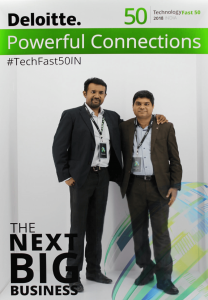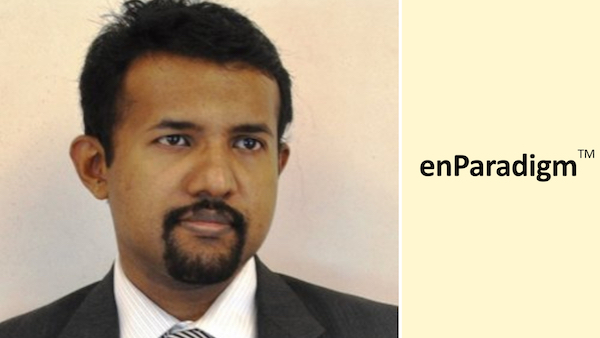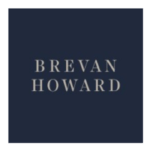How do you define learnability? With learning mechanisms having evolved significantly over the years, newer ways have rendered older ones outdated. Do you think there’s one perfect way to impart learning that sticks? If yes, what is it?
Learnability, according to me, can be best explained through the following four stages:
1. You don’t know that you don’t know
2. You know that you don’t know
3. You know that you know
4. You don’t know that you know – learning becomes subconscious (driving a car)
Stage One is a blind spot for people. Learners are not even aware that there’s something they need to learn. Stage two is where learnability begins when the learners know there’s something they need to learn. Stage three is witness to the tricky and risky “new-learner situation”. That is, learners of a new skill are conscious while using it and may fear failing. For instance, consider driving. Those who have just learnt to drive tend to be extra cautious while on the road amidst traffic. Stage four is when the learning is well embedded and becomes subconscious, such that the learners use the skill as a natural reflex and do not have to make any effort for the same.

Learning managers need to understand all these stages and focus on how they can provide a learning process that helps their people progress from stage one to two, two to three, and then three to four. Good learning processes are agile and manage to get these three bridges in place.
I feel, there’s no single, perfect way to learn, as different people learn differently. Some people may like to read, while some may like to watch videos and some may like to be only instructed. You never know what resonates with whom. It depends on people’s personalities and hence, L&D heads should provide a good mix of solutions to suit various needs.
Fear of failure impedes learning, and hence, it is important to provide a safe learning environment— the kind similar to a simulator where people know they can make mistakes in a risk-free virtual environment.
How did the enParadigm journey begin? Were there challenges along the way?
Founded in 2010, enParadigm was conceived with an aim to redefine learning processes such that they become more useful for the business rather than remain a mandatory drill. Three of us started with an office at IIM Ahmedabad’s Centre for Innovation, Incubation and Entrepreneurship. Today we have a team that builds learning solutions from end-to-end. This team not only designs and builds innovative learning solutions but also looks at the whole process of learning with an understanding of the issues in delivering learning in a way that ensures business outcomes.
Addressing some of the prominent challenges in learning — ensuring learner motivation, engaging content, understanding and incorporating the adult learning principles and ensuring learning application — enParadigm has always focused on the pain points in learning. As the name suggests, ‘enabling paradigm shifts in the corporate learning space’, enParadigm was founded with the same idea and each of its solutions ensures the same.
We have had to learn along the way and find solutions to challenges. For example, organisations, understandably, always ask about RoI from a programme. However, we learnt that there were more fundamental challenges. This was to identify learner needs based on business requirements. Another challenge was to convince the learner that they need to learn a particular skill. Without this demonstrating RoI or showing the impact of a programme to manager or other business stakeholders was not possible.
We built our REI™ (Relevance, Engagement, Impact) approach to help understand business needs and learner motivations before designing a programme. Post-program we also help with learning retention and compile impact reports.
Organisations need to partner with a learning company that doesn’t merely provide effective learning solutions but also one that helps measure impact.
The whole journey has been a story of innovations and disruptions. To begin with, we combined our business management and technological expertise to develop business simulations for developing hard skills. In 2015, we started creating sales-enablement solutions for the financial services sector. This was meant for the fleet on street to learn about new products, have access to the latest informations, create sales collateral on-the-go along with many other features. Over the last couple of years, we have created a host of behavioural simulations for soft-skill competencies, and a whole set of mobile-based microlearning products.
Deloitte Tech Fast 50 is a well-known global platform, and being listed amongst the 50 fastest growing tech companies in India for the second time is certainly remarkable. How did you work towards achieving this accolade? What are the various aspects that are assessed before conferring the Tech Fast 50 tag to a company? How did you score on each of those?
As a learning company operating in a competitive space we take pride in this achievement and see it as validation from our clients and the industry at large. Winning this title for the second time is certainly an affirmation of the fact that we are on the right track with our approach to learning.
The award is conferred upon companies that achieve extraordinary revenue growth over a three-year period. We witnessed a remarkable 341 per cent growth over the last three years.
While on our way to accomplishing this, we’ve had cycles of high growth and low growth. Each time after witnessing high revenue growth we’ve re-infused that into creating new solutions.
Going ahead to be part of the APAC Technology Fast 500 programme, how do you foresee the brand, enParadigm, growing?
Deloitte is a globally known brand and this endorsement by Deloitte is certainly helpful in gaining more credibility, both from our existing and potential customers. Being recognised as part of the APAC Technology Fast 500 program will be a great boost to our international market plans.
What are some of the aspects that make enParadigm unique as a learning tech company?
There are essentially three things that make us unique:
1. Connecting with the business: Our ability to partner with any industry—be it retail, pharma, IT, insurance and so on— and understand their business before we offer a solution helps people learn better and ensures that they apply the learning to their jobs.
2. Crafting Learner-centric experiences: We are always sensitive to the needs of and expectations from learners. Most people always wonder why they should learn certain things or how it will change their current existence and whether they will be able to retain that learning in time. We make sure that these questions or concerns are dealt with in a structured way and that the learner has a great experience through the process.
3. Using technology to eliminate challenges in learning: We extensively leverage technology to make learning more experiential for the learner and at the same time simplify the job of the learning manager or administrator. We have strong mechanisms to measure learning retention and application through instant feedback from the simulations, and post-workshop sustained learning modules to help learners refresh and retain what they have learnt. In addition, there’s a customer-success team which conducts a post-program follow-up to compile feedback on implementation back at work.
The learning and LMS tech space seem to be quite competitive with newer disruptions and innovations taking place every other day. How do you see it evolving and where should learning organisations focus their efforts?
Our solutions—products and approach—have disrupted the learning market over the years. We always focus on doing something 10x better than it already is. We keep both the present and the future in mind. Jumping to technological advancements is not the way to stay ahead. There are two things that matter the most:
1. Any learning company has to collaborate and build key industry and academia partnerships.
2. The focus should be on how people learn, and not on jazzy technology. Helping learners understand, internalise and apply the learning for a meaningful outcome to their business is what really matters and builds the repeatability and growth of our business.
To know more about enParadigm‘s solutions, click here.
Value our content... contribute towards our growth. Even a small contribution a month would be of great help for us.
Since eight years, we have been serving the industry through daily news and stories. Our content is free for all and we plan to keep it that way.
Support HRKatha. Pay Here (All it takes is a minute)



























